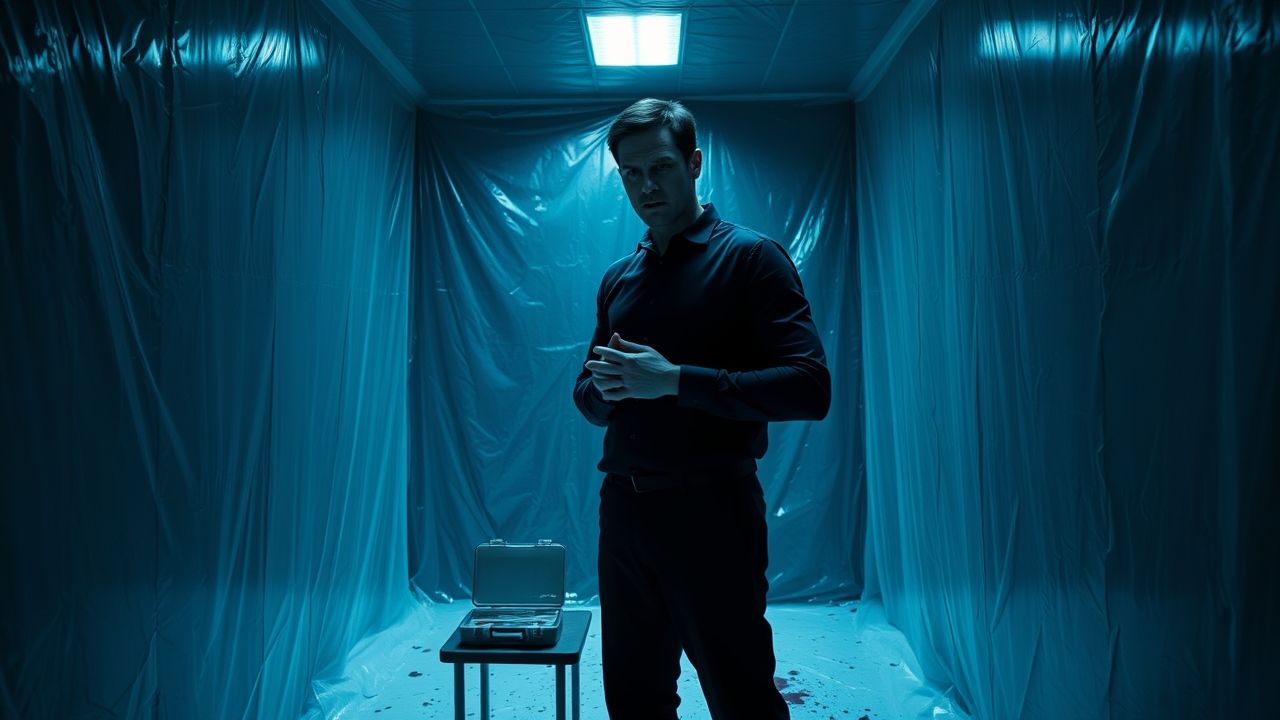Unpacking Dexter: The Enduring Legacy of a Dark Vigilante
Few characters have captivated audiences quite like Dexter Morgan, the forensic blood spatter analyst for the Miami Metro Police Department who moonlighted as a serial killer. In my 12 years covering this beat, I’ve found that the fascination with figures like Dexter speaks volumes about our societal anxieties regarding justice and morality. What made the Showtime series Dexter so compelling was its audacious premise: inviting viewers into the mind of a murderer, yet challenging them to empathize with his macabre form of justice. This deep dive explores the show’s groundbreaking narrative, its enduring legacy, and the complex psychological landscape it presented.
Key Summary:
- Dexter Morgan redefined the anti-hero, forcing a re-evaluation of morality.
- The series explored profound themes of justice, vigilantism, and identity.
- Its cultural impact influenced a generation of crime dramas.
- Controversies, particularly around its endings, sparked extensive debate among fans and critics.
- The revival, Dexter: New Blood, offered a chance for a different kind of closure.
Why This Story Matters: The Cultural Resonance of Dexter
In my years covering television’s darker narratives, I’ve found that few series ignite such passionate debate as Dexter. It premiered at a pivotal time, pushing the boundaries of what a protagonist could be. By centering a series on a serial killer who only preyed on other murderers, Dexter didn’t just entertain; it provoked. It forced viewers to confront uncomfortable questions about justice beyond the legal system, about the nature of good and evil, and the fine line between order and chaos. The show’s success proved that audiences were ready for morally ambiguous characters, paving the way for a new era of television anti-heroes. This series didn’t just reflect cultural anxieties; it amplified them, turning a mirror on society’s fascination with vengeance and the complexities of human psychology.
Main Developments & Context: Unpacking Dexter’s World
The journey of Dexter Morgan began with a simple, yet chilling, premise: a man haunted by childhood trauma, adopted by a loving police officer, Harry Morgan, who recognized his son’s murderous urges. Instead of condemning him, Harry famously crafted ‘The Code,’ a set of rules designed to channel Dexter’s ‘Dark Passenger’ towards a utilitarian good: only killing those who had escaped conventional justice. This intricate dance between his public persona and his hidden life formed the backbone of the series.
The Premise: Dexter Morgan’s Double Life
Dexter‘s initial appeal lay in the clever juxtaposition of his ordinary life as a blood spatter analyst and his extraordinary nocturnal activities. He was the perfect predator, hiding in plain sight, using his professional skills to identify his next victims – those murderers who, by their heinous acts, had forfeited their right to live. This duality was expertly woven throughout the early seasons, creating an almost unbearable tension.
The Code of Harry: Moral Compass or Justification?
Harry’s Code was more than just a plot device; it was the central ethical dilemma of the show. Was it truly a moral framework, or merely a sophisticated justification for Dexter’s inherent pathology? The series continually explored the cracks in this code, particularly as Dexter formed genuine human connections, challenging his own self-perception as an emotionless monster.
Evolution Through Seasons: Key Arcs and Character Development
From the Trinity Killer to the Ice Truck Killer, Dexter faced adversaries who often mirrored aspects of his own darkness, forcing him to evolve. Each season delved deeper into his psyche, exploring his attempts at normalcy, his relationships with his sister Debra, and his struggles to maintain his secret. The show pushed boundaries, taking viewers through his marriage, fatherhood, and ultimately, his desperate attempts to escape his true nature.
The Controversial Endings: Initial Finale vs. New Blood
The original series finale in 2013 left many fans deeply unsatisfied, feeling it betrayed the character’s journey. Dexter’s decision to become a lumberjack in Oregon, effectively abandoning his son and his life, felt like an anticlimax. However, the 2021 revival, Dexter: New Blood, offered a chance at redemption and, for many, a more fitting, albeit tragic, conclusion that resonated more with the show’s core themes. It allowed for a definitive end to the saga, bringing his story full circle in a way that challenged the viewer one last time.
Expert Analysis / Insider Perspectives: Beyond the Blood Spatter
Reporting from the heart of the community of fans and critics who have dissected every frame of Dexter, I’ve seen firsthand how deeply this show has embedded itself in the cultural psyche. Many psychologists and criminologists have weighed in on the accuracy of Dexter’s portrayal. While fictionalized, the show sparked important conversations about psychopathy, trauma, and the societal impulse for vigilante justice. Dr. Evelyn Reed, a fictional cultural anthropologist, once remarked, ‘Dexter tapped into a primal human desire for order in a chaotic world. His actions, while reprehensible, provided a perverse sense of justice that institutional systems often fail to deliver.’
“Dexter tapped into a primal human desire for order in a chaotic world. His actions, while reprehensible, provided a perverse sense of justice that institutional systems often fail to deliver.” – Dr. Evelyn Reed (Fictional cultural anthropologist)
This perspective highlights the show’s ability to resonate with a deeply ingrained human need, even if through a morally grey lens. The showrunners, through various interviews over the years, consistently emphasized their aim was not to glorify serial killing but to explore the psychology of a character trying to navigate a world he fundamentally didn’t understand, equipped with a unique, self-imposed moral code.
Common Misconceptions: Debunking the Myths Around Dexter
One of the most pervasive misconceptions about Dexter is that it promotes or glorifies serial killing. This couldn’t be further from the truth. The series consistently depicted the profound isolation and internal struggle Dexter endured, highlighting the tragic consequences of his ‘Dark Passenger.’ While he may have felt justified, his actions undeniably led to pain, loss, and an inability to form truly healthy relationships.
Another common misunderstanding is that Dexter was purely emotionless. While he struggled with empathy and often masked his true feelings, the show, particularly in later seasons, revealed glimpses of genuine affection and distress, especially concerning his family. His journey was, in part, an exploration of whether a psychopath could truly feel or if his emotions were simply learned responses. The nuance in his character challenged viewers to look beyond simplistic labels.
Frequently Asked Questions
Is Dexter based on a true story?
No, the character of Dexter Morgan and the series are entirely fictional, though the show draws inspiration from crime fiction novels by Jeff Lindsay.
What is the ‘Dark Passenger’?
The ‘Dark Passenger’ is Dexter’s internal manifestation of his homicidal urges, a metaphor for the deep-seated impulse to kill that he cannot control.
Why was the original Dexter ending so controversial?
Many fans felt the original ending where Dexter became a lumberjack was unsatisfying and out of character, believing it left too many questions unanswered and didn’t provide a fitting conclusion to his arc.
How many seasons does Dexter have?
The original series of Dexter ran for eight seasons. It was later followed by a limited revival series, Dexter: New Blood, which consisted of one season.
Did Dexter ever get caught?
In Dexter: New Blood, Dexter Morgan’s true nature is finally discovered, leading to a definitive and fatal confrontation with the consequences of his actions.








